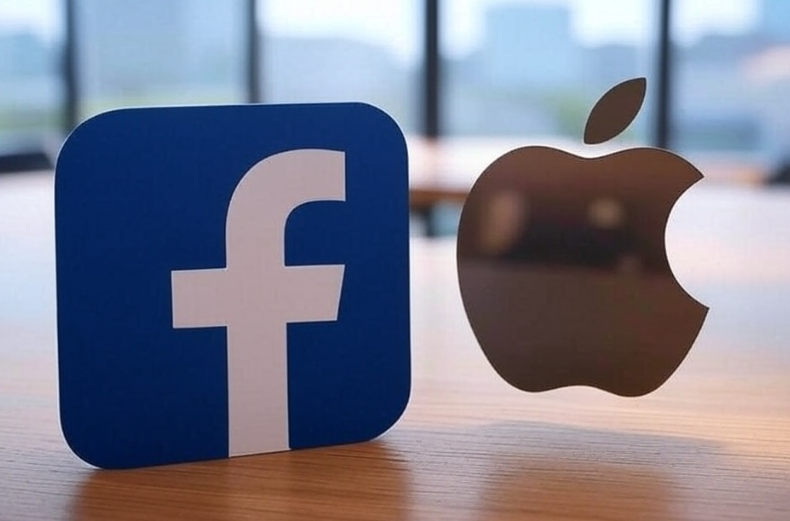Apple Eyes Perplexity Acquisition:As the AI gold rush intensifies, Apple and Meta are reportedly in talks to acquire Perplexity AI, one of the hottest names in artificial intelligence. With valuations soaring and strategic FOMO driving tech giants, this high-stakes battle could reshape the future of AI dominance. Get all the exclusive details on the valuations, behind-the-scenes talks, and why Alphabet’s absence from Coatue’s top tech list is raising eyebrows.
Apple Eyes Perplexity Acquisition as Meta Enters the Race for AI Supremacy
The artificial intelligence race is heating up, and recent developments suggest that some of the biggest tech giants are quietly — and not so quietly — maneuvering to secure their positions. One of the most talked-about names in this arena is Perplexity AI, a private AI startup that has captured significant interest from companies like Apple and Meta.
According to recent reports, Apple has held internal discussions about potentially acquiring Perplexity AI. Bloomberg broke the story earlier, and CNBC later confirmed that Meta also had conversations with Perplexity but ultimately decided against the deal, choosing instead to go with Scale AI. What makes this news particularly intriguing is Apple’s track record. Historically,
Apple has been known for building its own technologies rather than making large-scale acquisitions. If Apple were to acquire Perplexity, it would represent one of the company’s biggest acquisitions ever — far exceeding the $3 billion it spent on Beats.
The speculation surrounding these talks raises several questions. Is Perplexity shopping itself around? Are these leaks deliberate, aimed at drumming up interest or pushing up the valuation? As of the last known funding round in December, Perplexity was valued at around $14 billion, but given the current AI boom, its valuation could be significantly higher now. Some experts speculate that a multiple of 25 could be applied, suggesting a possible acquisition price far north of $14 billion.
The debate on whether Apple should buy Perplexity also touches on strategic considerations. Apple has often been criticized for lagging behind in the AI race, especially compared to competitors like Google and OpenAI. An acquisition of Perplexity could instantly propel Apple forward in the AI space.
However, some industry watchers argue that Apple could simply license or rent Perplexity’s technology rather than making a full-blown acquisition. This approach would avoid regulatory hurdles and keep costs lower while still giving Apple access to cutting-edge AI capabilities.
Meanwhile, Meta’s strategy under Mark Zuckerberg appears far more aggressive but also somewhat scattershot. Zuckerberg approached Perplexity ahead of his deal with Scale AI, but reportedly, Perplexity walked away from the discussions. Some sources suggest the decision was mutual. This adds Perplexity to a growing list of AI companies that Meta has attempted to acquire or partner with, including mission-driven research labs like SSI and various other AI infrastructure and consumer applications.
Critics argue that Zuckerberg’s AI acquisition spree reflects more of a fear-of-missing-out (FOMO) strategy rather than a coherent, long-term plan. His moves span multiple layers of the AI stack, from research labs to consumer-facing applications to infrastructure, creating a collection of diverse but loosely connected assets. This approach raises questions about Meta’s long-term vision in AI and whether it’s truly building an integrated AI ecosystem or simply accumulating assets to keep pace with rivals.
An important factor influencing acquisition discussions is the mindset of the top AI researchers themselves. For many, it’s not just about salary or financial upside. These researchers are often motivated by the opportunity to contribute to the development of superintelligence, to publish groundbreaking research, and to make a lasting impact on the field.
Companies like OpenAI and Anthropic appeal to these values, and that makes acquisition negotiations more complex for companies like Meta or Apple, which may be perceived as arriving late to the AI revolution.
Adding another layer to the conversation, Philippe Laffont’s Coatue Management recently published its “Fantastic 40” list of companies poised to define the next era of tech. Surprisingly, Alphabet (Google’s parent company) was excluded from this list, despite its substantial AI advancements. Industry experts find this omission puzzling, especially since Google’s Gemini model has been independently benchmarked as one of the best and most cost-effective AI models, even surpassing the latest from OpenAI and Anthropic.
Beyond AI, Google’s Waymo autonomous vehicle division continues to expand rapidly, and its core search business, while facing potential AI disruption, remains robust. Many argue that even if Alphabet isn’t leading in every AI subfield, leaving it off a top-40 tech innovators list seems extreme.
Philippe Laffont’s list does include names like Microsoft, Nvidia, Bitcoin, Amazon, Meta, TSMC, and Tesla at the top, reflecting the market’s current sentiment and investment flows. However, his decision to exclude Alphabet has sparked significant debate, especially given Coatue’s reputation in Silicon Valley.
In summary, the AI arms race is creating unprecedented deal-making activity, with mega-cap companies like Apple and Meta making bold moves to secure their future in this transformative field. Whether Apple ultimately decides to buy Perplexity or not, and whether Meta’s FOMO-fueled strategy proves effective, the outcome of these high-stakes negotiations will likely shape the competitive landscape of AI for years to come.

